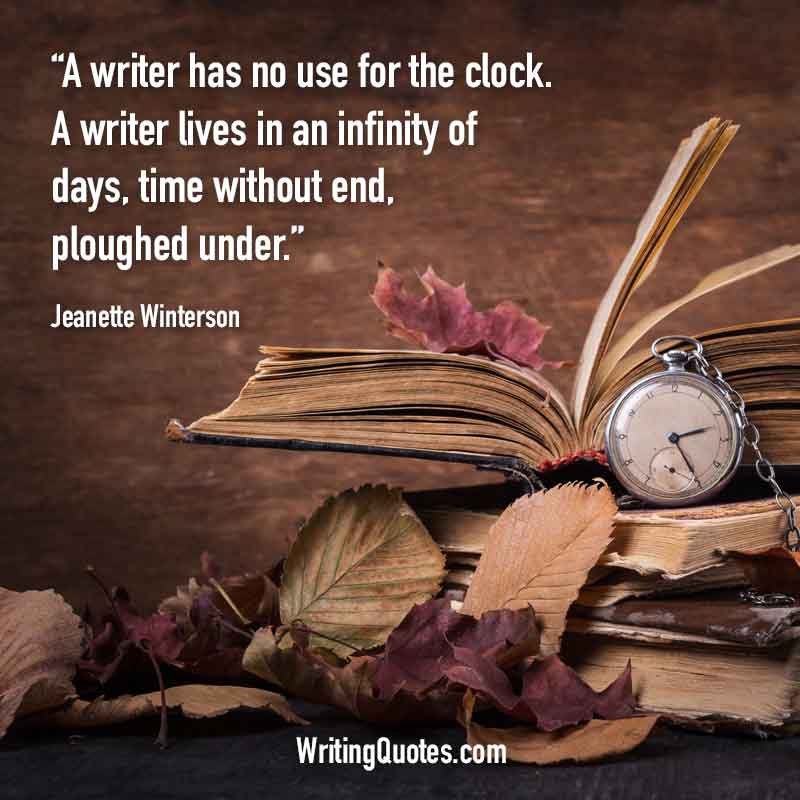Paul Whybrow
Full Member
National Novel Writing Month—NaNoWriMo—has started, so I thought it would be interesting to explore how writers pace themselves.
I must admit, that I've always been a little puzzled about the appeal of NaNoWriMo, but that's because I've never been neurotic about achieving a daily word count. I don't like the idea of rushing anything that's pleasurable to me, preferring to pace myself and savour the joy. What I can see NaNoWriMo is good for is instilling a sense of discipline in those writers who get distracted from sitting down at the keyboard.
It's also a way of getting your name in the public eye, including scrutiny from literary agents and publishers on the hunt for energetic unsigned talent. Well-reviewed novels such as Water For Elephants by Sara Gruen, Wool by Hugh Howey and The Night Circus by Erin Morgenstern found publishers via NaNoWriMo.
Outside of writing challenges, various gurus have cautioned against overworking yourself.
William Zinsser author of On Writing Well advised that, "Many writers are paralyzed by the thought that they are competing with everybody else who is trying to write and who is presumably doing it better...Forget the competition and go at your own pace. Your only contest is with yourself."
In The Writing Life, Annie Dillard suggested "Your freedom as a writer is not freedom of expression in the sense of wild blurting; you may not let rip. It is life at its most free, if you are fortunate enough to be able to try it, because you select your materials, invent your task, and pace yourself."
I came across a quote recently that summed up my own attitude to pacing myself when writing. Brenda Ueland was quite a character and among her many books, she penned a writing guide called If You Want to Write: A Book about Art, Independence and Spirit. First published in 1938, it contains timeless good advice, including "I learned that you should feel when writing, not like Lord Byron on a mountain top, but like a child stringing beads in kindergarten—happy, absorbed and quietly putting one bead on after another."
That's how I feel when I'm constructing a story. I'd rather write a few hundred carefully considered words, supported by editing what came before than go full bore chasing a 3,000 daily word count that requires reconstructing to make sense. I tend to add to my WIP in the evening, having cogitated, from time to time, on what to write during the day. I know when I'm done, when the creative juices are drying up, agreeing with what Anthony Trollope said: "Three hours a day will produce as much as a man ought to write."
How do you pace yourself?
Do you set time apart from other commitments, keeping to a timetable?
Do you strive for a daily word count or to complete an entire chapter?
Is time out from writing therapeutic or a cause of guilt? My 'weekend' is Thursday, when I get paid and visit town to shop and change library books. I do no creative writing, but make notes of anything that comes to me. I feel refreshed when I go back to my WIP on Friday.

I must admit, that I've always been a little puzzled about the appeal of NaNoWriMo, but that's because I've never been neurotic about achieving a daily word count. I don't like the idea of rushing anything that's pleasurable to me, preferring to pace myself and savour the joy. What I can see NaNoWriMo is good for is instilling a sense of discipline in those writers who get distracted from sitting down at the keyboard.
It's also a way of getting your name in the public eye, including scrutiny from literary agents and publishers on the hunt for energetic unsigned talent. Well-reviewed novels such as Water For Elephants by Sara Gruen, Wool by Hugh Howey and The Night Circus by Erin Morgenstern found publishers via NaNoWriMo.
Outside of writing challenges, various gurus have cautioned against overworking yourself.
William Zinsser author of On Writing Well advised that, "Many writers are paralyzed by the thought that they are competing with everybody else who is trying to write and who is presumably doing it better...Forget the competition and go at your own pace. Your only contest is with yourself."
In The Writing Life, Annie Dillard suggested "Your freedom as a writer is not freedom of expression in the sense of wild blurting; you may not let rip. It is life at its most free, if you are fortunate enough to be able to try it, because you select your materials, invent your task, and pace yourself."
I came across a quote recently that summed up my own attitude to pacing myself when writing. Brenda Ueland was quite a character and among her many books, she penned a writing guide called If You Want to Write: A Book about Art, Independence and Spirit. First published in 1938, it contains timeless good advice, including "I learned that you should feel when writing, not like Lord Byron on a mountain top, but like a child stringing beads in kindergarten—happy, absorbed and quietly putting one bead on after another."
That's how I feel when I'm constructing a story. I'd rather write a few hundred carefully considered words, supported by editing what came before than go full bore chasing a 3,000 daily word count that requires reconstructing to make sense. I tend to add to my WIP in the evening, having cogitated, from time to time, on what to write during the day. I know when I'm done, when the creative juices are drying up, agreeing with what Anthony Trollope said: "Three hours a day will produce as much as a man ought to write."
How do you pace yourself?
Do you set time apart from other commitments, keeping to a timetable?
Do you strive for a daily word count or to complete an entire chapter?
Is time out from writing therapeutic or a cause of guilt? My 'weekend' is Thursday, when I get paid and visit town to shop and change library books. I do no creative writing, but make notes of anything that comes to me. I feel refreshed when I go back to my WIP on Friday.


